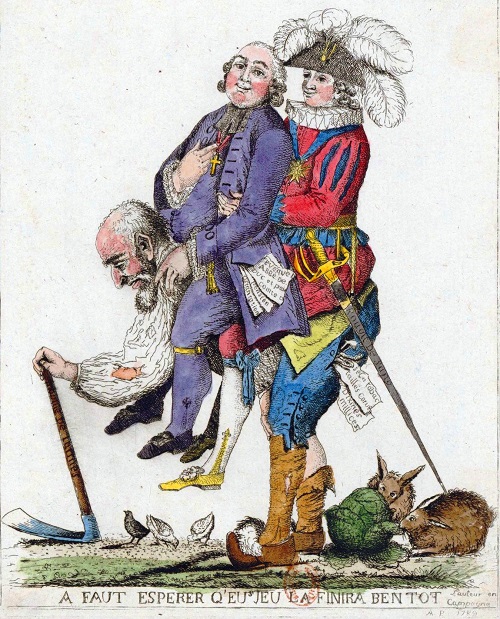
By Rob Butters
One of the great joys in my teaching career has been coaching in the Canadian Improv Games. Most, but not all, of the coaches are Drama teachers. The rest of us come from a whole range of subjects, just like coaches of school sports do. Improv is about positive energy, and being in the moment. Improvisers are encouraged to bring their knowledge, talents, and interests to the unscripted theatre they create. And I think it works in reverse, too: from time to time I bring the skills of Improv to my history classroom.
Here’s an icebreaker-style game for CHY4U that helps students take historical perspective:
Third Estate Circle Game:
In this game, the teacher starts in the centre of a class circle.
Everyone else has a chair. This aspect of the game is taken from a drama game that’s sometimes called “Fruit Salad.” Explain that the idea is to get out of the centre of the circle and take someone’s seat. This variation of it teaches the concept of the Estates in France if you are teaching the French Revolution. Teacher labels each student “First Estate, Second Estate, Third Estate, Fourth Estate, King” – except have only one student for Fourth Estate, one King and lots of Third Estate. Explain that this is 18th century French society. Play the switching seats game. If they call out “King” then everyone moves. Tell the King to never move.
Then, start to explain. First Estate is also known as “Those Who Pray,” Second a.k.a. “Those Who Fight” and Third a.k.a. “Those Who Work.” Play the game a couple of more times with either set of terms being called out. Then talk to the students: who are you in society? What do you do for your country?
Add the terms “Clergy” (for First Estate), “Nobility” (Second), Commoner (Third), Press (Fourth). Play the game until all the terms are reinforced.
Then, add more twists to actually subvert the game – simulating the discontent of the Revolution. Introduce the idea of calling out for “For France!” and “For the People!” Who would move? Everyone? Even the King? Let them try playing with these hints of dissent. If the King doesn’t move – never gets up off their butt – how does that make the other students feel? Eventually, the Third Estate might start to resent the King or the other estates. If not, talk with the class about how Louis XVI, the clergy and the nobility failed to stop the discontent building in real-life France.
Just one warning: this game gets really physical!
Rob Butters is Head of History at Stouffville D.S.S.


